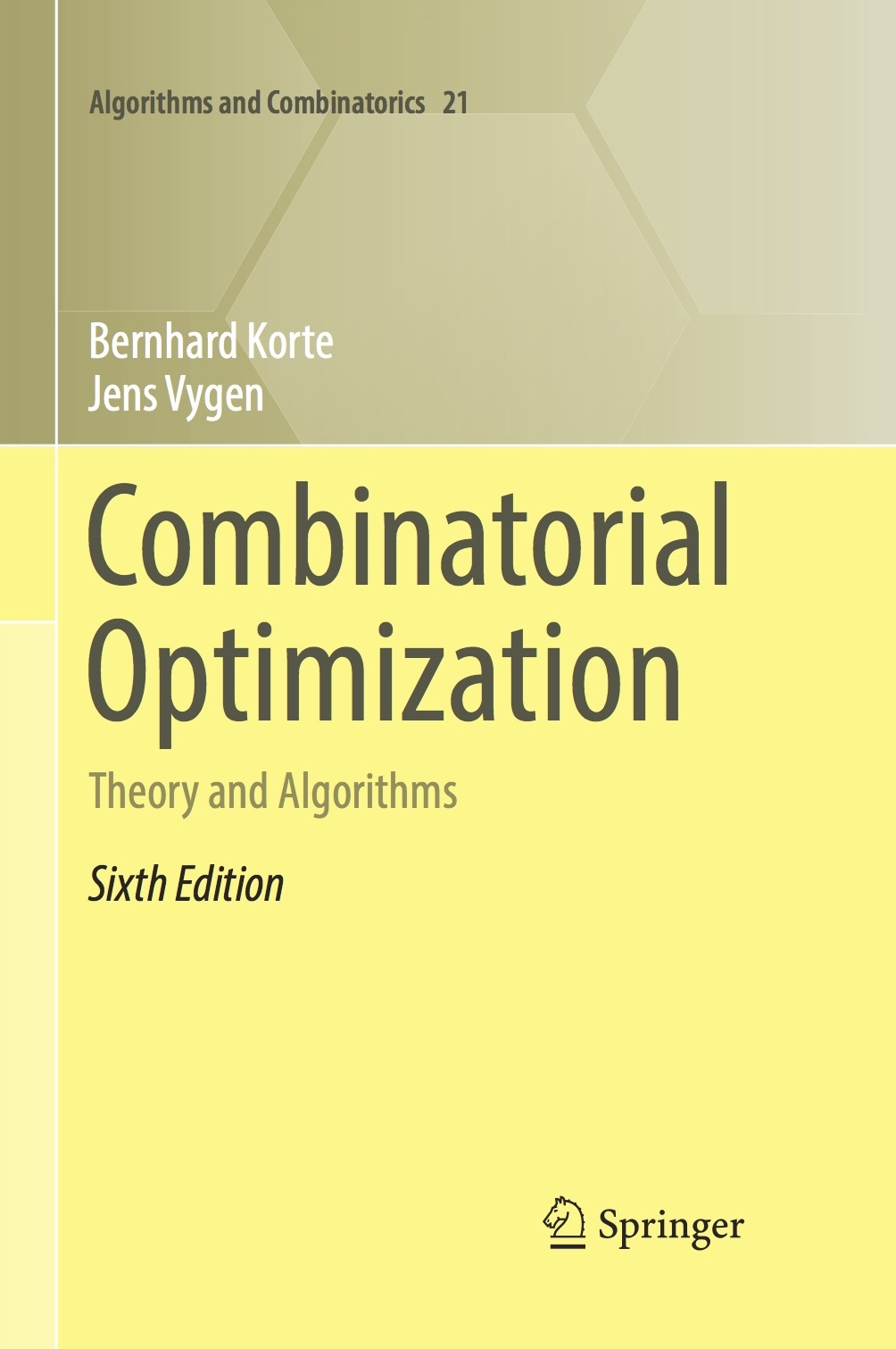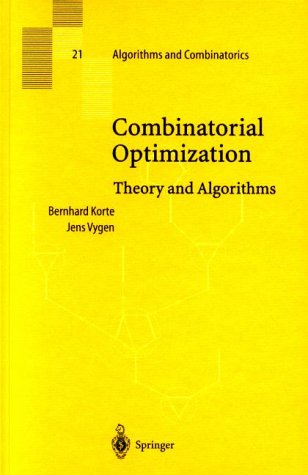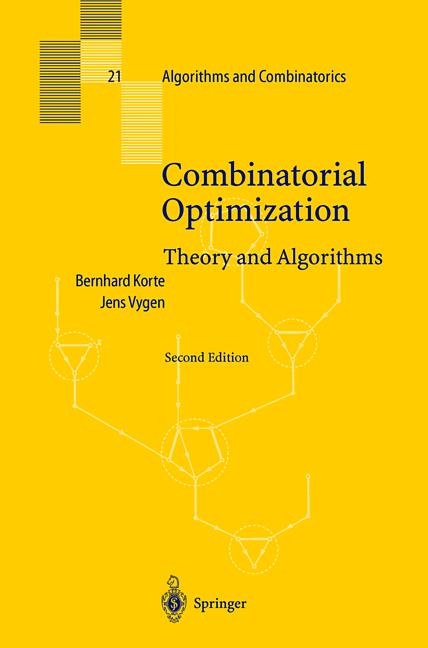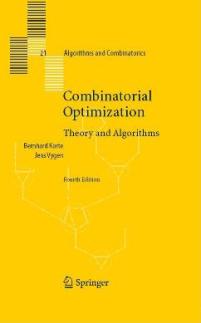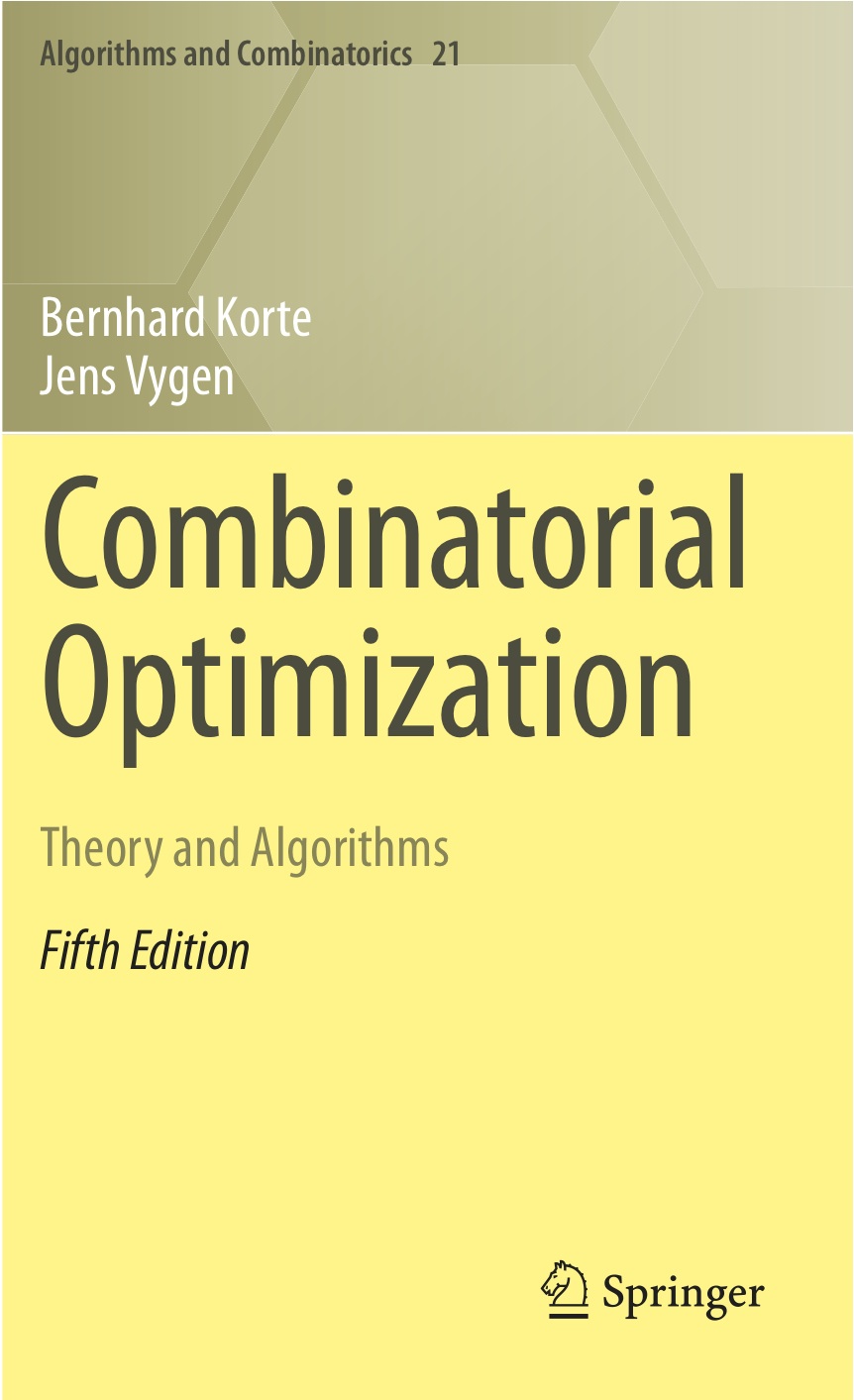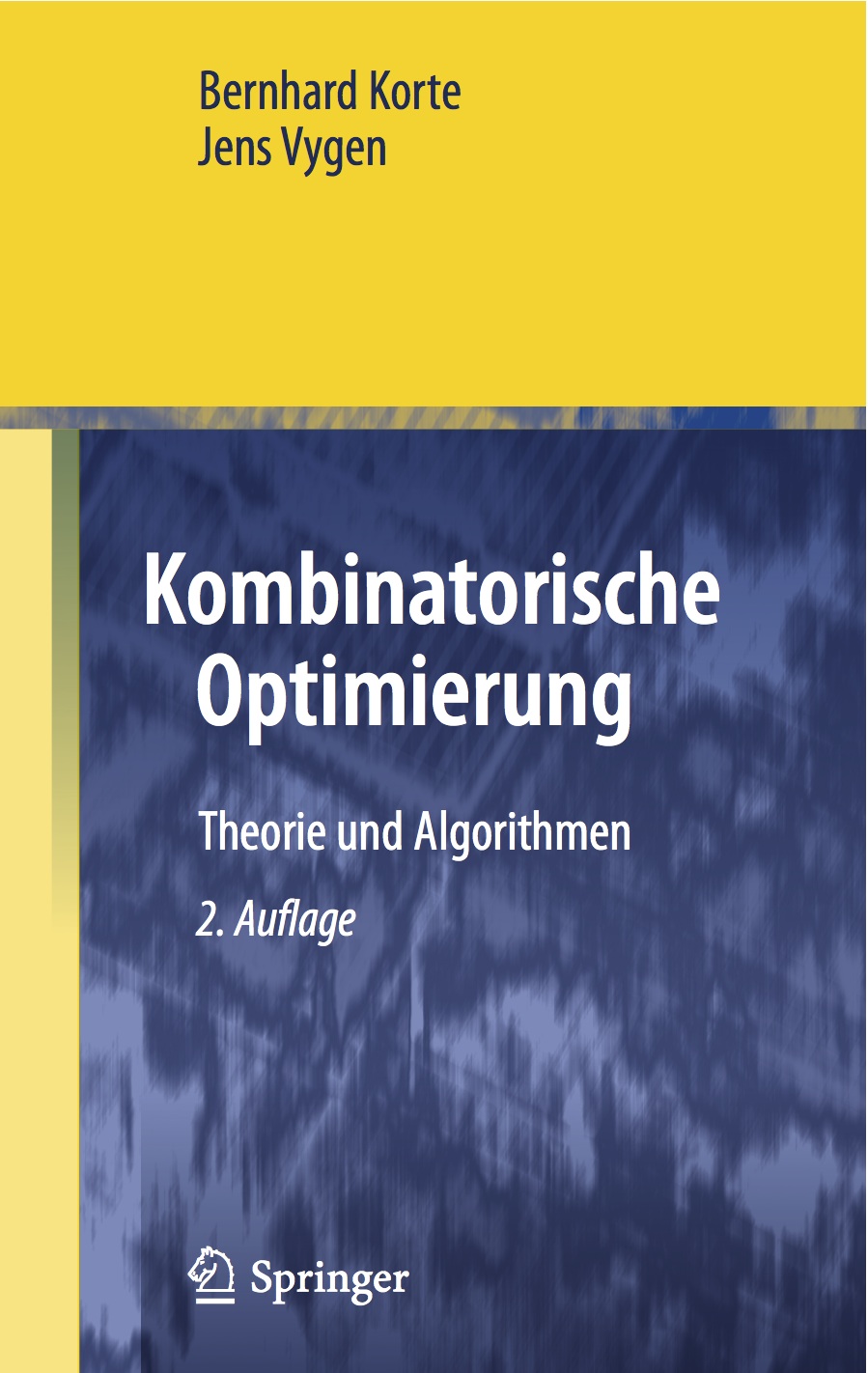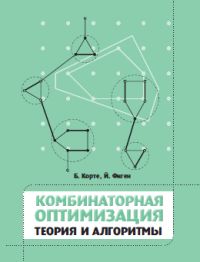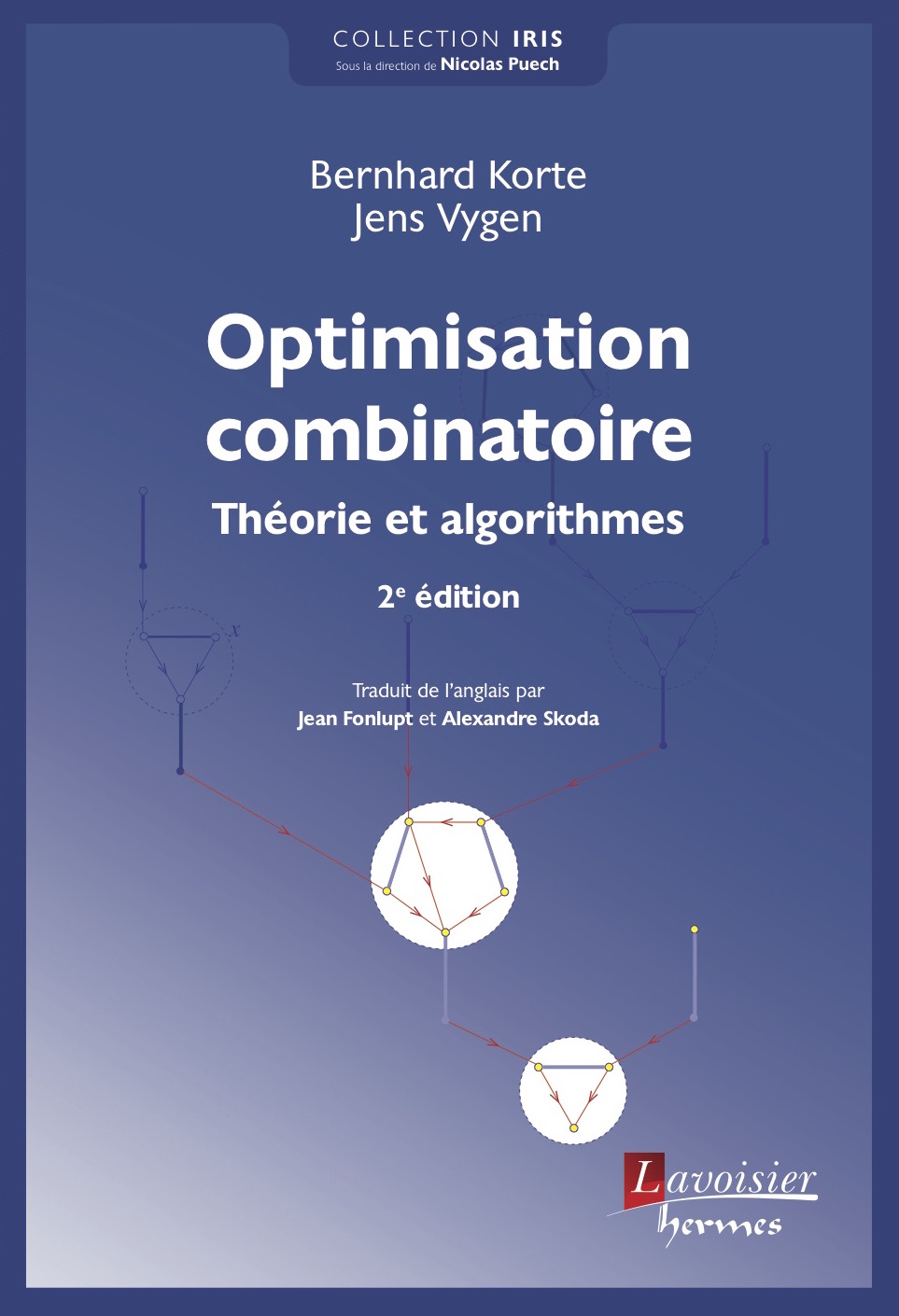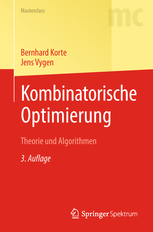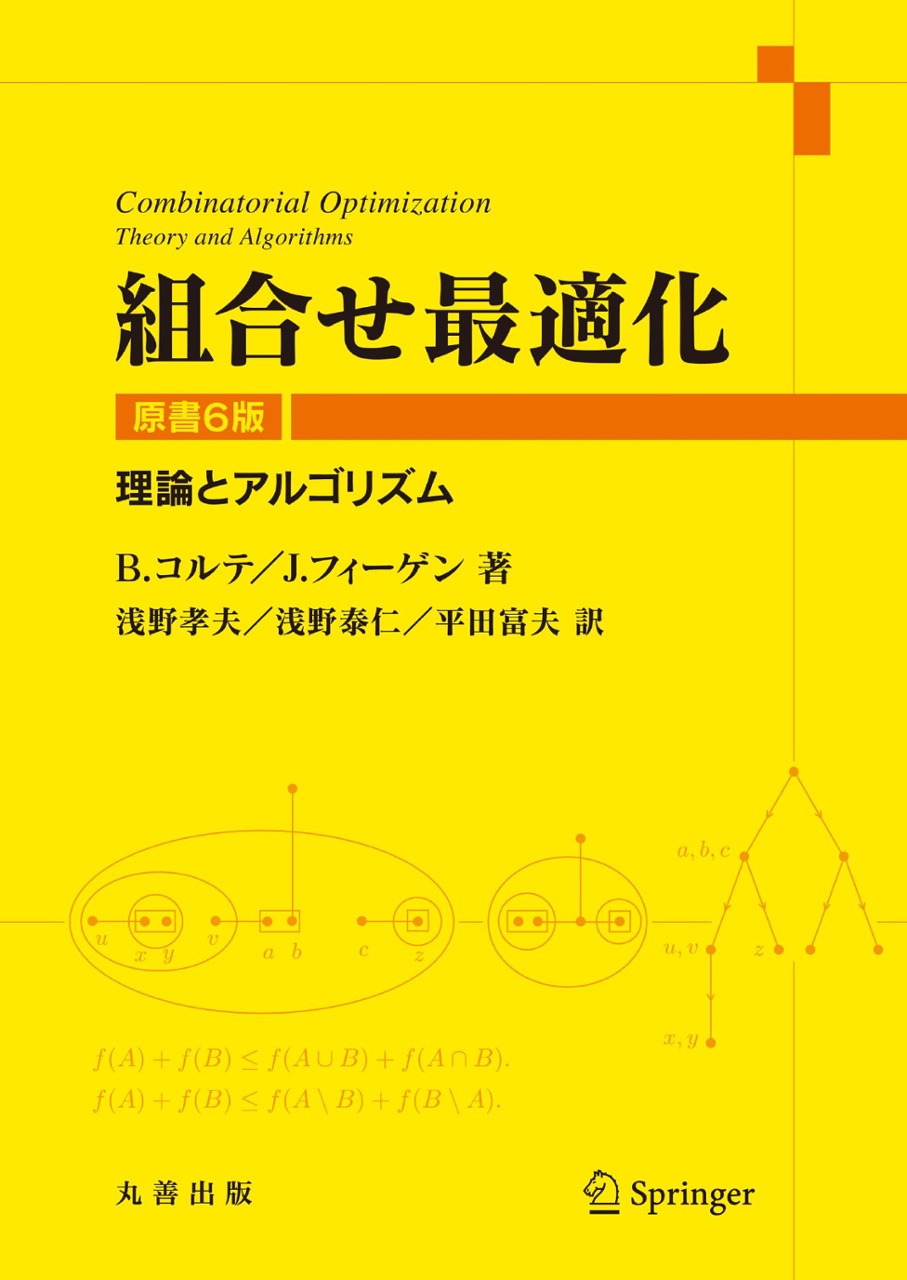| Page |
Line |
Comment |
| 38 | 24 |
Replace 1958 by 1758.
|
| 58 | 14 |
Replace "min" by "max".
|
| 92 | 12 |
Replace "the system $Ax\le b$" by "the system describing $P$".
|
| 138 | 35 |
Replace $k \ge 1$ by $k \ge 2$.
|
| 141 | 9 |
Replace c(e):=0 by c'(e):=0.
|
| 153 | 13-16 |
The inequality system in Exercise 20 is not correct. A correct version is:
$x_e\ge 0$ ($e\in E(G)$), $z_{r,u,v}\ge 0$ ($\{u,v\}\in E(G), r\in V(G)$),
$\sum_{e\in E(G)}x_e=n-1$,
$x_e=z_{r,u,v}+z_{r,v,u}$ ($e=\{u,v\}\in E(G)$, $r\in V(G)$), and
$\sum_{\{u,v\}\in\delta(v)} z_{r,u,v}=1$ ($v\in V(G)$, $r\in V(G)\setminus \{v\}$).
|
| 169 | 34 |
Replace arborescence by tree.
|
| 204 | 24 |
One must require $c \ge c'$ in Exercise 6.
|
| 289 | 39 |
Replace $\sigma(\rho^{k_v}(v)):=r_j$ by $\sigma(\rho^{k_v-1}(v)):=r_j$.
|
| 291 | 10 |
Replace $\epsilon_3=0$ by $\epsilon_2=0$.
|
| 303 | 25-27 |
The full version of the paper by Gabow [1990] appeared in ACM Transactions on Algorithms 14 (2018), Article 39.
|
| 324 | 1-3 |
The full version of the paper by Gabow [1983] appeared in ACM Transactions on Algorithms 14 (2018), Article 39.
|
| 351 | 30,31 |
Replace $X$ by $X_k$.
|
| 354 | 31 |
Replace "r(X)=" by "r'(X)=".
|
| 360 | 33 |
We need $y\not= z$ here.
|
| 365 | 6 |
Replace E(G) by E.
|
| 378 | 10 |
The right-hand side of this inequality should be
$\max \{ \sum_{t=(p,A,B)\in T_{i-1}} p x_t \Delta_B, \sum_{t=(p,A,B)\in T_{i-1}} p (1-x_t) \Delta_A \}$.
This is sufficient because either
$\Exp[f(O_{i-1})-f(O_i)] \le x_t \Delta_B$ for all $(p,A,B)\in T_{i-1}$
or
$\Exp[f(O_{i-1})-f(O_i)] \le (1-x_t) \Delta_A$ for all $(p,A,B)\in T_{i-1}$;
see the proof of (14.4).
|
| 379 | 32 |
In Exercise 10, one must require $f(\emptyset)=0$.
|
| 379 | 38 |
In Exercise 11, f should be integer-valued.
|
| 381 | 30 |
Replace "$f$ and any $g_C$" by "$g$ and any $f_C$".
|
| 382 | 26-28 |
The paper by Buchbinder and Feldman [2016] appeared in ACM Transactions on Algorithms 14 (2018), Article 14.
|
| 434 | 3 |
A factor 1/2 is missing on the left-hand side of the inequality.
|
| 460 | 21-22 |
The half-sentence "which is better..." makes no sense and should be deleted.
|
| 480 | 7 |
Replace (U,V,W,T) by (P,Q,R,T).
|
| 485 | 3 |
The second sum should go from 1 to h-1.
|
| 533 | 29 |
This line should read: "Set $E(G):=\delta_{G'}(X)$ and $E(H):=E(G')\setminus\delta_{G'}(X)$."
|
| 552 | 13 |
Replace G+f by G[T]+f.
|
| 557 | 21 |
We can choose $Y^*_k$ to be an optimum Steiner tree here.
|
| 558 | 13 |
The second sum should of course go over $C\in\delta^+_{\mathcal{C}^k}(U)$.
|
| 573/574 | 19/25 |
Lemma 20.38 and Theorem 20.39 also hold when f can have negative values (which can happen when
we apply the Theorem).
|
| 584 | 33 |
We set $x'_e:=\frac{1}{1-\alpha}x_e$.
|
| 628 | 28-29 |
The paper by Svensson, Tarnawski and Végh [2017] appeared in the Journal of the ACM 67 (2020), Article 37.
|
| 628 | 30-32 |
The paper by Traub and Vygen [2018] appeared in the Journal of the ACM 66 (2019), Article 14.
|
| 630 | 29-30 |
Replace "greater than 1" by "greater than 2".
|
